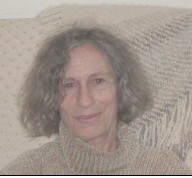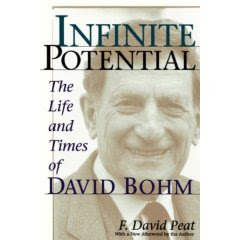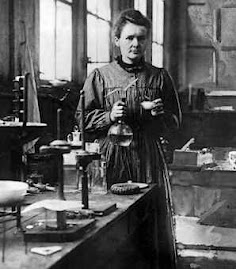October 24, 2006
Things are not as they seem
It was music to my ears. Yesterday on NPR someone actually resisted the urge to use the idiom ‘a blink of the eye.’ Seems like the phrase is everywhere nowadays. To their great credit, whoever it was instead said “in a flash."
Don't get me wrong. I love the phrase a blink of the eye and it's old-fashiony feeling. But it has come to grate on me. This is because I have an unusual relationship to it. I first published it as a metaphor for unconscious cognition and intuition in 1997 in an article entitled “Towards an understanding of intuition and its importance in scientific endeavor.” The article appeared in the journal Perspectives in Biology and Medicine. It was part of a very complex experience, which has had an important role in guiding my decade-long exploration of intuition.
The long and short of it---at least at one level---is that Malcolm Gladwell "scooped" me with his book BLINK. (There is a lot more to that story---in case you are wondering --- but I will save that for another day). I'm not sure that technically one can get scooped on what one has already published. But scooped I was--- in the sense that the perception is widespread that the use of the idiom in the context of intuition is original to Gladwell, which is not true.
My book is very different from BLINK (Review of BLINK). It is an attempt to plumb the depths of intuition. It explores the topic from both a scientific and experiential perspective. I am a biologist whose cognitive style is unusually intuitive. After I became interested in intuition, I had a number of unusual experiences that turned this elusive mental capacity on itself. The encounter in which 'a blink of the eye' came to me as a definition of what I called intuitive processing (the rapid thought-like unconscious cognition Galdwell describes) as well as full intuition is one of roughly 10 intuitive experiences that I explore in-depth in the book.
As a scientist, I also examine the biological and cognitive mechanisms likely to underlie intuition. Over time, rather to my surprise, the experiential and the scientific material began to integrate. The thinking and writing took a lot of hard work and went fairly slowly, but the process was very satisfying. Eventually the two approaches began, not just to integrate, but to bootstrap on each other. Each further insight in one domain tended to lead me deeper into the other. When I first began the project, it seemed a nearly impossible task, and I could not even imagine the terrain ahead. Now the book seemed to be taking on a life of its own. I started to breathe more easily.
Then came Gladwell's book! It took a while for the import of it to sink in. The most difficult moment came when I heard his book was on the bestseller list during an NPR interview with him. I realized then that, in spite of the fact that I published this intuitive definition of intuition first, for all practical purposes Gladwell now owned the metaphor. In fact, since it was the core metaphor of my book, it left me in the position of seeming to be plagiarizing Gladwell.
The next month was difficult, but it turned out to be the beginning of another journey--- one I had certainly not realized I was signing up for when I began studying intuition. Looking back, I see that one cannot delve seriously into matters that touch on spirituality----as intuition does --- without getting one's feet wet. Many people have the idea that spirituality is an attitude that we can pull out of our stash of attitudinal coveralls when we feel we need some comfort. Sometimes it is that--- and I have to admit that I have used it this way. But I've come to learn---once more---that real spirituality tends to challenge you to your very core. It is---as they say, life changing---something that seldom comes without some serious growing pains. Enough for today---
Don't get me wrong. I love the phrase a blink of the eye and it's old-fashiony feeling. But it has come to grate on me. This is because I have an unusual relationship to it. I first published it as a metaphor for unconscious cognition and intuition in 1997 in an article entitled “Towards an understanding of intuition and its importance in scientific endeavor.” The article appeared in the journal Perspectives in Biology and Medicine. It was part of a very complex experience, which has had an important role in guiding my decade-long exploration of intuition.
The long and short of it---at least at one level---is that Malcolm Gladwell "scooped" me with his book BLINK. (There is a lot more to that story---in case you are wondering --- but I will save that for another day). I'm not sure that technically one can get scooped on what one has already published. But scooped I was--- in the sense that the perception is widespread that the use of the idiom in the context of intuition is original to Gladwell, which is not true.
My book is very different from BLINK (Review of BLINK). It is an attempt to plumb the depths of intuition. It explores the topic from both a scientific and experiential perspective. I am a biologist whose cognitive style is unusually intuitive. After I became interested in intuition, I had a number of unusual experiences that turned this elusive mental capacity on itself. The encounter in which 'a blink of the eye' came to me as a definition of what I called intuitive processing (the rapid thought-like unconscious cognition Galdwell describes) as well as full intuition is one of roughly 10 intuitive experiences that I explore in-depth in the book.
As a scientist, I also examine the biological and cognitive mechanisms likely to underlie intuition. Over time, rather to my surprise, the experiential and the scientific material began to integrate. The thinking and writing took a lot of hard work and went fairly slowly, but the process was very satisfying. Eventually the two approaches began, not just to integrate, but to bootstrap on each other. Each further insight in one domain tended to lead me deeper into the other. When I first began the project, it seemed a nearly impossible task, and I could not even imagine the terrain ahead. Now the book seemed to be taking on a life of its own. I started to breathe more easily.
Then came Gladwell's book! It took a while for the import of it to sink in. The most difficult moment came when I heard his book was on the bestseller list during an NPR interview with him. I realized then that, in spite of the fact that I published this intuitive definition of intuition first, for all practical purposes Gladwell now owned the metaphor. In fact, since it was the core metaphor of my book, it left me in the position of seeming to be plagiarizing Gladwell.
The next month was difficult, but it turned out to be the beginning of another journey--- one I had certainly not realized I was signing up for when I began studying intuition. Looking back, I see that one cannot delve seriously into matters that touch on spirituality----as intuition does --- without getting one's feet wet. Many people have the idea that spirituality is an attitude that we can pull out of our stash of attitudinal coveralls when we feel we need some comfort. Sometimes it is that--- and I have to admit that I have used it this way. But I've come to learn---once more---that real spirituality tends to challenge you to your very core. It is---as they say, life changing---something that seldom comes without some serious growing pains. Enough for today---
Subscribe to:
Post Comments (Atom)














3 comments:
Many people get comfort from organized religion. I hope you don't mean to imply that this is not real spirituality. I gather your point is that spirituality can go much deeper and have a very radical influence on the way that one experiences the world.
DAC
Gladwell also "borrowed" the name The Tipping Point---from an immunologist---for his former book. I wonder how that person feels about it? At least Gladwell cited his work!
Sue G.
For a decade, I've been coming back to this post every couple of years to marvel, and shake my head.
Gladwell uses the metaphor of a blink not for cognition (a nonsensical use of either the metaphor itself, or the term metaphor), but for the amount of time it takes a rapid cognitive leap to occur. This is patently obvious, I think, and this use--"in the blink of an eye" as an expression to define a brief interval of time--goes back millennia. The use of such an established phrase in a mundane and broad domain such as "intuition" is hardly a novel construction.
Post a Comment